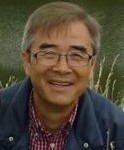Wonsuk Ma: A First Waver Looks at the Third Wave
Wonsuk Ma, “A ‘First Waver’ Looks at the ‘Third Wave’: A Pentecostal Reflection on Charles Kraft’s Power Encounter Terminology,” PNEUMA:The Journal of the Society for Pentecostal Studies, Vol 19 No 2 (Fall 1997): 189-206.
The purpose of Wonsuk Ma’s article is to open further theological dialogue between classical Pentecostals (the “First Wave”) and the Third Wave movement. He does this by first giving a brief overview of the origins of the Third Wave and a definition of the movement according to its best-known proponent, C. Peter Wagner, “… a further evolution of the two earlier movements which emphasized the Holy Spirit and the contemporary manifestations of the Spirit” (page 189).
The specific focus of this article is upon the “lower-level” power encounter, or deliverance ministry for individuals, as this concept is developed and employed by missionary anthropologist Charles Kraft. He reproduces notes from a deliverance session he participated in while a doctoral student at Fuller Seminary, where Kraft is a professor in the School of Mission. From this he looks at the similarities and some of the differences between Pentecostal and Third Wave assumptions about the supernatural. He does this by comparing his own Asian, classical Pentecostalism to the theories and practices of Charles Kraft.
In the opinion of this writer, Ma’s article stuck to his intention, being “designed to challenge the Pentecostal movement to reflect upon its own current direction, and only incidentally to critique the Third Wave” (p. 193).
Wonsuk Ma discusses what Pentecostals can learn from Charles Kraft in regards to pastoral concern, deliverance ministry, and theological challenges. He then looks at some of the criticisms that have been leveled at the Third Wave. He presents the criticisms and then evaluates them from a Pentecostal perspective, showing at each point that which Pentecostals should be reminded of or challenged by.
Although this article may not be a good introduction to the Third Wave (and certainly it was not intended to be), it is an introduction to the challenge of having greater dialogue between the three waves of charismatics. Wonsuk Ma’s heart is obviously to see increased dialogue develop between Pentecostals, charismatics, and the Third Wave. “Pentecostals and Charismatic scholars, with a common experience of the Holy Spirit, have constantly enriched each other’s theological understanding. … For the same reason of sharing common ground, the Third Wave should be invited to join constructive dialogue with the First and Second Waves. The common ground for this dialogue will again be the belief and experience in the supernatural work of God” (p. 205).
Ma closes by contending that God is speaking to the Pentecostal movement through the rise of the Third Wave. If God is speaking, let us then be certain to hear His voice.
Reviewed by Raul Mock
Category: Church History, Fall 1998, Pneuma Review



